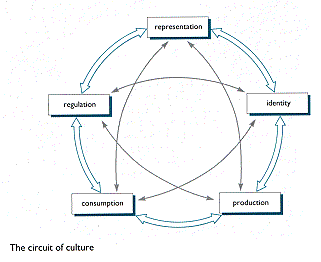Thursday, April 29, 2010
Projects 1 and 2 videos by Eric Levine
Here is a video of my Project 1 called From A To D.
Wednesday, April 21, 2010
3D filming

Art in Virtual Worlds







This week we'll take a look at and, if you want, go into the virtual world Second Life to see the kinds of immersive, interactive virtual art that can be made and experienced there. Today, I'll give you an overview of SL and virtual subjectivity (which has been the main topic I've been exploring through machinima, virtual art, and writing), and tomorrow you'll have the opportunity to learn how to build a 3d sculpture in SL in a workshop session, and then we'll visit some art installations.
Thursday, April 15, 2010
Internet Dating
Tuesday, April 13, 2010
3DTV
Starting in June 2010, DirecTV will premiere four channels dedicated to 3D programming. They will include ESPN 3D, a 3D-only channel called N3D, a 3D pay-per view channel, and a 3D DirecTV on Demand. ESPN 3D is a free upgrade for ESPN-subscribing DirecTV members, while the rest of the channels are free upgrades for all DirecTV subscribers.
Discovery Channel has also announced plans to launch a 3D channel in 2011, as a cooperation with IMAX and Sony.
The world's fascination with 3D stems from our want to have fiction be as realistic as possible, thus allowing us to believe it. The technology has been around for over 50 years and shows no signs of slowing, only growth.
The fact that two 3D movies were on the list of Best Picture nominations at the 2009 Academy Awards shows that it is becoming more and more mainstream to have 3D in our everyday life. Why wouldn't the next step be the screen in each of our homes?
In the future, I could likely see all channels broadcasting in 3D, as long as they find a technology to allow us not to wear those stupid looking glasses.
Monday, April 12, 2010
Ten Questions to Ask about Technology
 Here are Ten Questions (ok there are more, because some questions are kind of nested) to ask about a new technology tool that help us think about it in its wider cultural context. I am working off of, as usual, Cultural Studies founder Stuart Hall's idea of the circuit of culture, in which production, consumption, regulation, representation, and identity are all mutually informing. When we combine this with the historical trajectory perspective I am always harping on--which puts any given cultural text (game, device, app, film, dvd menu, etc) in a lineage of antecedents, looks for its peak if it has had it yet, and then speculates wildly on what might come next--we will always have a lot to talk about when we talk about any new aspect of technology, beyond the thumbs up/thumbs down reaction from which we might start and then come back to at the end, perhaps more thoughtfully.
Here are Ten Questions (ok there are more, because some questions are kind of nested) to ask about a new technology tool that help us think about it in its wider cultural context. I am working off of, as usual, Cultural Studies founder Stuart Hall's idea of the circuit of culture, in which production, consumption, regulation, representation, and identity are all mutually informing. When we combine this with the historical trajectory perspective I am always harping on--which puts any given cultural text (game, device, app, film, dvd menu, etc) in a lineage of antecedents, looks for its peak if it has had it yet, and then speculates wildly on what might come next--we will always have a lot to talk about when we talk about any new aspect of technology, beyond the thumbs up/thumbs down reaction from which we might start and then come back to at the end, perhaps more thoughtfully. Ten questions to ask about a new technology:
1) What is its purpose?
2) What was its analog, if there was one? How does a mediated, digital, or networked version of the tool or technique change it?
3) Who uses it? How? When? Where? Why? Does the use change over time? Do different users use it differently?
4) How does a user learn how to use it?
5) Who makes it? Who profits? How?
6) How is it regulated?
7) How does it spread?
8) Does it create or fill a need?
9) What is the interface? Is it also an object? Or a practice? Both? (think cell phone)
10) How does the user change the technology as he or she uses it? (mods and hacks and appropriations) How does the technology change the user? How does it become part of a person's sense of self?